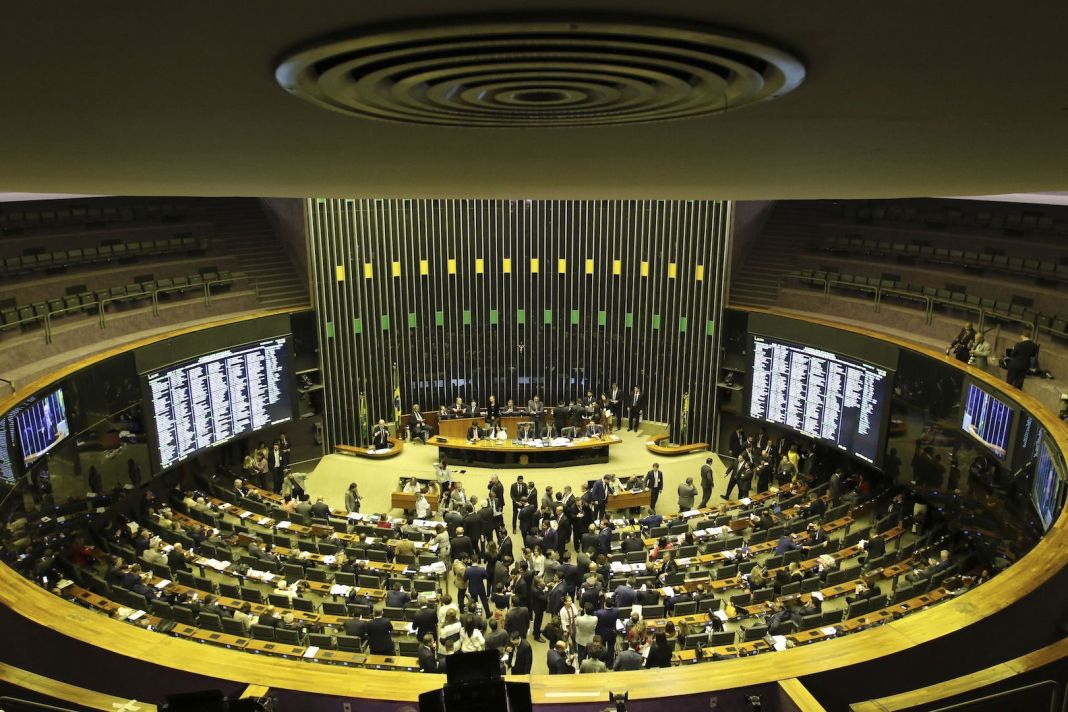Under Deputy Arthur Lira’s (PP-AL) leadership, Brazil’s Chamber of Deputies is passing any legislation beneficial to its members.
On Wednesday night, it quickly approved a bill punishing banks and other financial institutions for refusing to provide services such as opening accounts or extending credit to politically exposed individuals – including lawmakers, judges, mayors, and members of the Federal, State, and Municipal powers.
The stated objective is to prevent “political discrimination.”
Bill 2720, authored by novice Deputy Dani Cunha, daughter of Eduardo Cunha, a former Speaker of the House impeached by his peers and sentenced to over 50 years in prison, was passed late in the night after a surprise presentation and quick vote in the House, endorsed by Lira.
The text now proceeds to the Senate, to the surprise of Rodrigo Pacheco (PSD-MG), unaware of the bill and its contents.

Following the broad invalidation of cases brought against people implicated in Operation Car Wash by the Supreme Court, the Chamber, led by the Centrão and often supported by PT (Lula’s Worker’s party), feels free to undermine legal oversight of their actions.
They are advancing legislation designed to exempt lawmakers from legal responsibility for acts that could be deemed harmful by the country’s laws, even those recently passed by Congress.
The deputies seek a broad, general, and unrestricted amnesty for infractions involving party and election funds.
Political parties have generally ignored the fund quotas allocated to women, Black people, and minorities while using resources for prohibited activities. Now they will be absolved by a decision made by the violators themselves.
The bill, passed as a substitute from rapporteur Claudio Cajado (PP-BA), under the guise of combating discrimination against politicians, creates privileges for politicians, commissioned position holders, and public service elites.
The pretext is false, and the solution mocks, creating obligations for financial institutions to face fines and imprisonment for non-compliance.
According to the bill’s author, Deputy Dani Cunha, “If you have a request to open an account at a financial institution denied today, there needs to be a reason.”
If politicians or politically exposed people were prevented from having checking accounts or obtaining credit, it would have been impossible to prove large-scale corruption acts, such as those that occurred over the past two decades.
This is not the issue at hand.
The proposed law prevents and punishes banks for refusing to provide credit or maintain open accounts for those involved in preliminary investigations or any other criminal, civil, or administrative investigation process and extends to individuals or corporations closely associated with politicians.
The description implies that anyone who avoids providing credit or moving resources to a broad “orange grove” will be punished.
The approval of such an unworthy and anti-republican project had the support of at least 45 deputies from the Workers’ Party.
Deputy Marcel van Hattem (Novo-RS), who voted against it, summed up its essence.
“Any scammer, defendant convicted in the second instance, any criminal person is guaranteed to open an account at the bank and even get credit,” he said.

